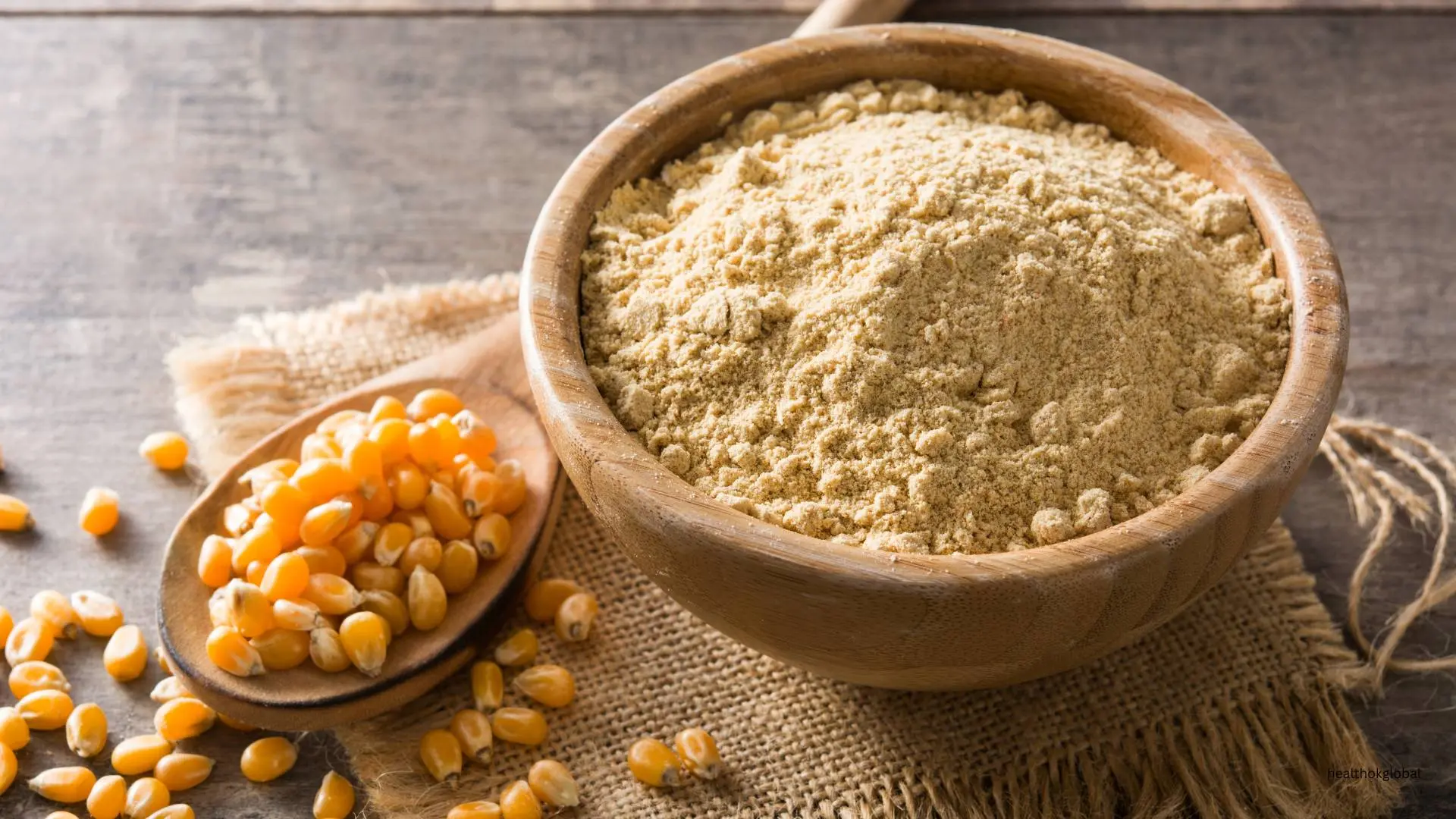Corn flour is a nutrient-rich ingredient with several health benefits, including digestive support, energy boost, and heart health enhancement.

Blog
Unlock the Nutritional Power of Corn Flour: Health Benefits Explained
Corn flour is a versatile and nutrient-rich ingredient derived from dried corn kernels. It is widely used in global cuisines and offers various health benefits. From boosting digestion to providing essential vitamins, incorporating corn flour into your diet can significantly enhance your overall well-being.
Corn flour is packed with essential nutrients, making it a healthy addition to any diet. It contains complex carbohydrates, vitamins, minerals, fiber, and antioxidants. Here’s a closer look at its nutritional content:
Corn flour is an excellent source of B-complex vitamins, including B1 (thiamine), B6 (pyridoxine), and folate, which play a crucial role in brain function and metabolism.
Corn flour contains essential minerals like magnesium, phosphorus, iron, and zinc, which contribute to bone strength, oxygen transport, and immune function.
The dietary fiber in corn flour promotes gut health by improving digestion and regulating bowel movements.
Corn flour contains antioxidants such as lutein and zeaxanthin, which help protect against oxidative stress and support eye health.
Incorporating corn flour into your diet can provide numerous health benefits, including:
The fiber content in corn flour aids digestion, prevents constipation, and promotes gut microbiome balance.
Corn flour is a great source of complex carbohydrates that provide sustained energy, making it an excellent choice for athletes and active individuals.
Corn flour is low in saturated fat and contains heart-friendly fiber, which can help lower cholesterol levels and reduce the risk of cardiovascular diseases.
Corn flour is naturally gluten-free, making it a suitable option for individuals with celiac disease or gluten intolerance.
Magnesium and phosphorus in corn flour are crucial for maintaining strong and healthy bones, reducing the risk of osteoporosis.
Corn flour contains zinc, which plays a vital role in strengthening the immune system and reducing the duration of colds and infections.
Corn flour is incredibly versatile and can be used in a variety of dishes:
Use corn flour to prepare gluten-free bread, muffins, and pancakes.
Corn flour acts as a natural thickening agent for soups, gravies, and sauces.
A light corn flour coating enhances the crispiness of fried vegetables and meats.
Yes, the fiber content in corn flour promotes satiety and can help control appetite, making it beneficial for weight management.
In moderation, corn flour can be part of a diabetic diet, but it is advisable to consult a healthcare provider for personalized guidance.
Corn flour is finely ground, while cornmeal has a coarser texture and is used in different culinary applications.
Corn flour is a nutritious and versatile ingredient that can support overall health when consumed as part of a balanced diet. It offers digestive support, heart health benefits, and essential nutrients. Whether used in baking, thickening sauces, or preparing gluten-free meals, corn flour is an excellent addition to your kitchen.
HealthOK Global provides expert insights on nutrition, meal planning, and healthy eating habits. Contact our FREE 24 x 7 Healthcare Helpline at +91-8047190955 for assistance.
Corn flour is incredibly versatile and can be used in a variety of dishes:
Yes, the fiber content in corn flour promotes satiety and can help control appetite, making it beneficial for weight management.
In moderation, corn flour can be part of a diabetic diet, but it is advisable to consult a healthcare provider for personalized guidance.
Corn flour is finely ground, while cornmeal has a coarser texture and is used in different culinary applications.
Need Personalized Health Guidance?
Get expert advice tailored to your specific health needs from our qualified healthcare professionals.





